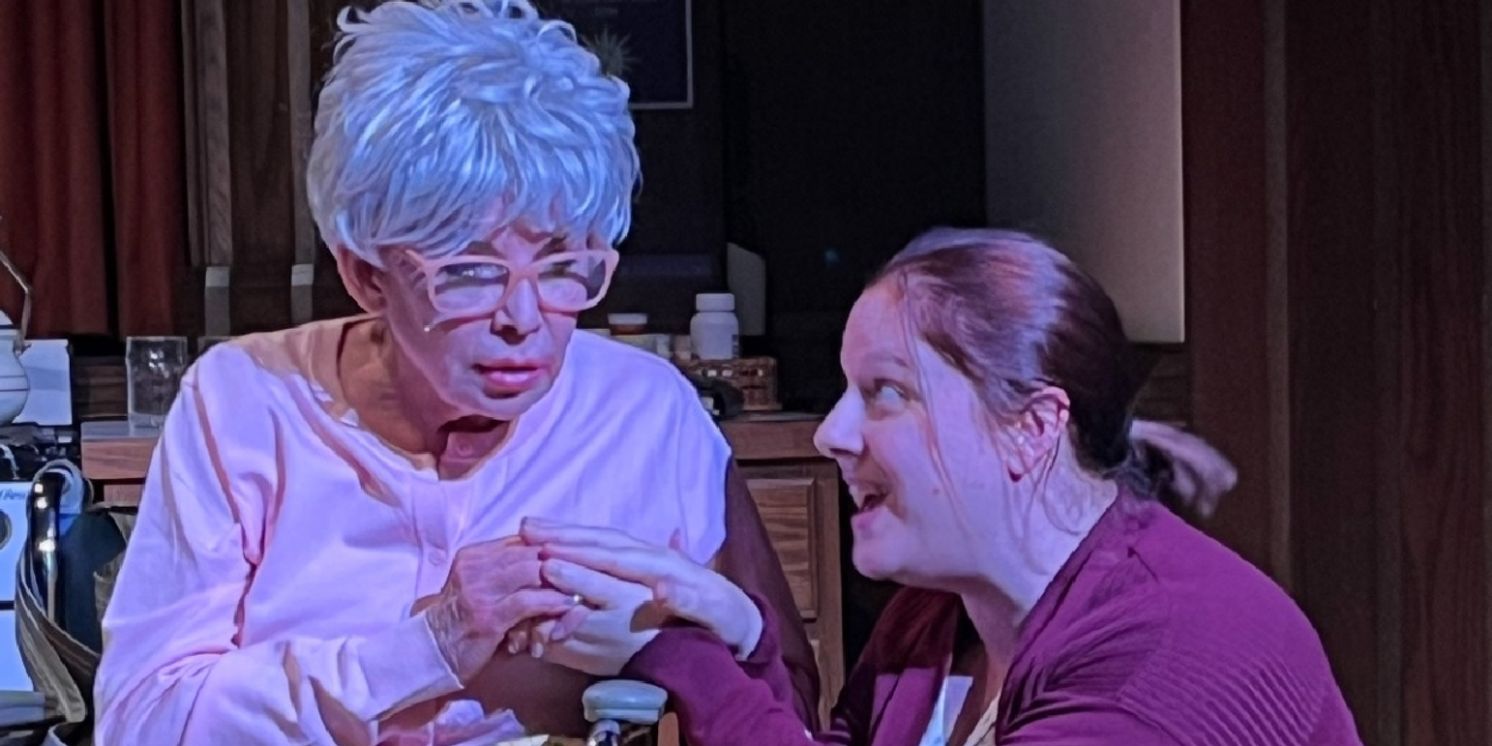Review: THE SHADOW BOX at Guild Hall Theatre
The production runs February 13 through 16, 2025

Michael Cristofer’s 1977 Pulitzer Prize-winning drama The Shadow Box concerns a grim topic that all of us will one day face. Wildly successful on its release, it won the Tony Award for Best Play. But for all its success, oddly enough, it has rarely been produced since the 1980s. The play tackles the universal themes of loss, fear, and human attachment. Guild Hall Players mounts a heartbreaking and emotional production of The Shadow Box and succeeds in tackling this demanding piece of theatre.
According to program notes, director Joe Parrish attended the pre-Broadway original production. It was a time when the Hospice Movement was beginning to find its place in the medical community. The script follows the structure based on Helen Kubler-Ross’s five stages of grief. At that time, the Kubler-Ross structure was not commonly known, but forty-eight years later the playwright’s text challenges, both actors and directors, to no longer educate today’s audiences but to remind them.
The Shadow Box tells the stories of three families dealing with a terminal illness. The action takes place in three separate cottages on the grounds of a California hospital in 1973. Performed by an extremely talented cast of nine, they fully delivered a beautiful emotional performance that left me in tears by the end.
The time, with occasional lapses, covers a twenty-four-hour period. Scenes rapidly change from one cottage to the next, and sometimes lines alternate from character to character without regard to the scene. The cottage families, however, never show an awareness of one another. At the end of the play, the characters speak directly to the audience reminding us that “this moment” is all anyone has for certain.
The audience first meets Joe (played by Dan Schuster), his in-denial wife Maggie (played by Julie Williams), and their blissfully unaware teenage son, Steve (played by Nicholas Dreier). The relationship between Joe, a simple family man who can’t understand why he has to die and Maggie, who can’t admit to what is about to happen, is well interpreted. Schuster and Williams share a natural chemistry that makes for some incredibly believable moments. The confrontation near the end of the play, when both try to face Joe’s coming demise, is stellar. Dreier’s performance is exemplary, and I wish he had more time onstage.
The second family is less traditionally structured. Eccentric philosopher Brian (played by director Parrish) is a man spending his final days with his young lover, Mark (played by Jonny Kline). Their caretaking is interrupted by the arrival of Brian’s vivacious alcoholic “former” wife, Beverly (played by Michele Janssens). Brian’s attempt to stay vibrant and the clash between Mark and Beverly are captivating. This is true drama fueled by conflict. Veteran actors Parrish and Janssens deliver well-defined characters and Kline’s performance rises to the top. Their scenes are well executed.
The third family involves wheelchair-bound elderly Felicity (played by Crystal Meek) who is quickly fading away with dementia and is cared for by her devoted doting daughter, Agnes (played by Erin Polewski). The relationship between the incapacitated mother and her least-preferred daughter is highly intense. Meek’s performance is spellbinding and truly believable while Polewski is a true storyteller. I enjoyed their chemistry very much.
Rounding out the cast is Mary Tush Green as the off-stage Interviewer, who is simply a voice from another room coaxing the characters to share their grief, feelings, and trials. Green’s voice creates a powerful presence in the lives of the characters. These scenes reveal each character’s fears and secrets while the Interviewer’s purpose remains unclear to the characters.
Director Parrish’s staging of the show creates a tableau that intrigues and informs the audience of the empty spaces between the characters. The simple set worked well for this performance. The light design by Joseph Heil establishes the three cottage areas perfectly and the property design by Louise Brinegar and Gene Carr was well done.
The Shadow Box is an absorbing and heartbreaking look at grief and how we deal with it. Despite the subject theme, it’s a moving piece and worth the visit.
Performance dates are February 13-15 at 8:00 pm and February 16 at 7:00 pm. Guild Hall is located inside Saint James Episcopal Church at 3750 East Douglas in Wichita, KS. Admission is $12 for adults and $10 for students. Tickets are available at the door.
Next at Guild Hall, R.T. Robinson’s dramatic comedy, The Cover of Life (May 22-25) followed by the comedy classic You Can’t Take It With You (July 24-27).
Reader Reviews

Videos

